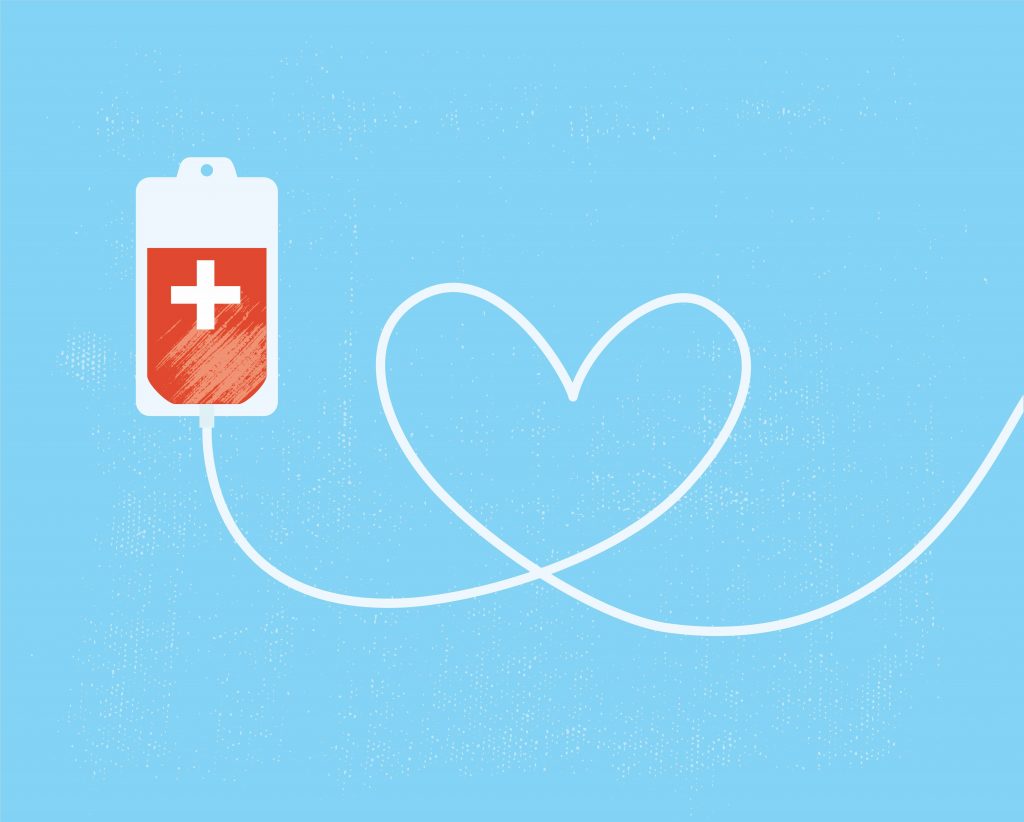-
Featured News
Mayo Clinic Q and A: Hospitals are always in need of new blood donors

DEAR MAYO CLINIC: I’ve never donated blood before because I’m nervous that I’ll faint when I see the needle or blood. Is there anything that I can do to prevent that from happening?
ANSWER: It’s common to be nervous about donating blood if you’ve never done it before. But blood donation center staff members are skilled at making the experience as smooth as possible, and your donation will make a difference. Hospitals are always in need of new blood donors.
It is estimated that less than 3% of Americans donate blood. That’s a concern because many people in the U.S. need blood every day. Some may need blood during surgery. Others may require blood transfusions after an accident. Still others have a disease that makes it necessary for them to receive red blood cells or other blood components. In some cases, receiving donated blood may be the difference between life and death for these people.
Fear of fainting, needles and seeing blood are all reasons people cite for avoiding blood donation. But these worries often turn out to be much less daunting than people anticipate.
For example, the needlestick for blood donation is similar to what you feel when you get a vaccination or have blood drawn. Also, you do not have to watch as the needle is inserted, and you do not have to see the blood. Many blood donation centers offer TVs or small video screens that you can use during a donation to help keep your mind occupied while you are donating.
Fainting before, during or after blood donation is rare. Studies suggest that drinking about 16 ounces of water and having a salty snack before you donate may lower your risk of fainting. Eating a healthy meal before you donate blood also makes it less likely that you will have other side effects, such as dizziness, lightheadedness or nausea, after you donate.
As you consider donating blood, be assured that the process is safe. A new sterile collection set, including the needle, is used for each donor. That means there is no risk of getting an infection or disease by donating blood. Most healthy adults can donate about a pint of blood without any health risks. Your body replaces the fluids it loses during a blood donation within about 24 hours. The red blood cells that you donate are replaced in your body within several weeks.
When you arrive at the blood donation center, you are given a confidential medical history form to fill out. You’ll also have your blood pressure, pulse and temperature taken. A small sample of blood taken from a finger-stick is used to check your hemoglobin, the part of your blood that carries oxygen. If your hemoglobin concentration meets eligibility criteria and you meet all the other screening requirements, you can donate blood.
Finally, keep in mind that there is no substitute for human blood. One donation of whole blood can help at least three people. By donating blood, you are offering a lifesaving gift. — Dr. Manish Gandhi, Transfusion Medicine, Mayo Clinic, Rochester, Minnesota
****************************
Related Articles
- Mayo Clinic Minute: Does your blood type matter when donating blood? published 1/22/19
- Mayo Clinic Minute: What happens to donated blood? published 1/15/19
- Osteoarthritis / blood donation / New Year’s resolution – exercise: Mayo Clinic Radio published 1/6/19
- Housecall: The lifesaving need for blood donation published 11/12/18
- Consumer Health: Blood donation published 1/5/18







